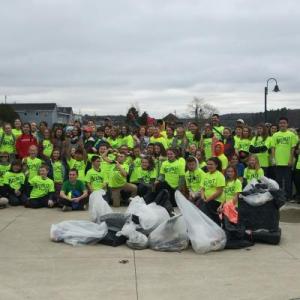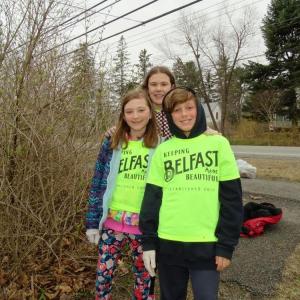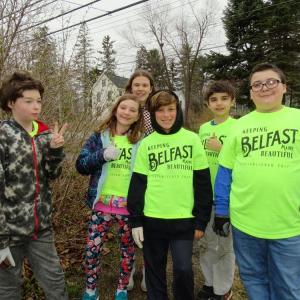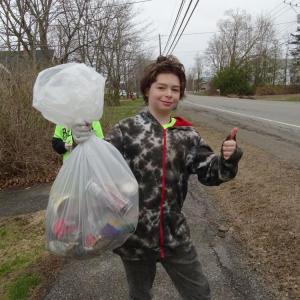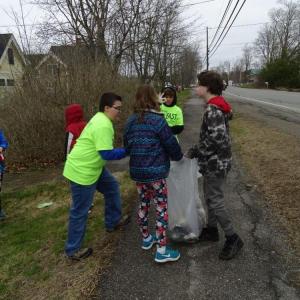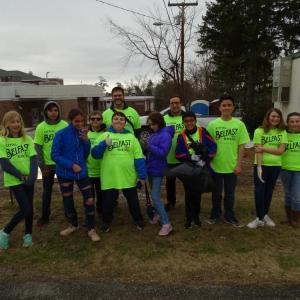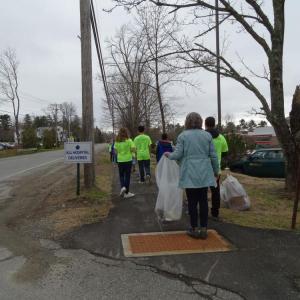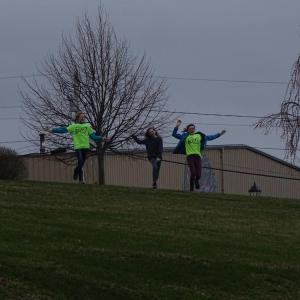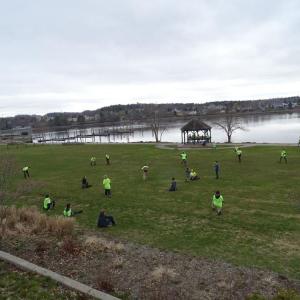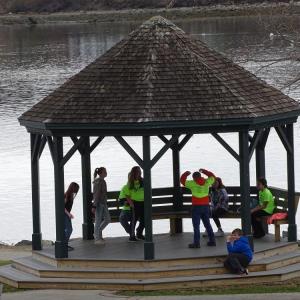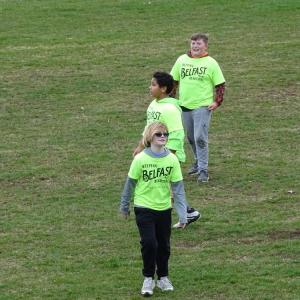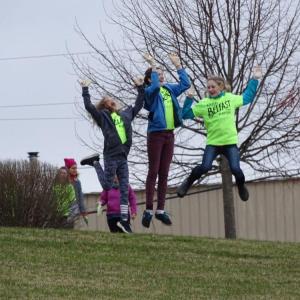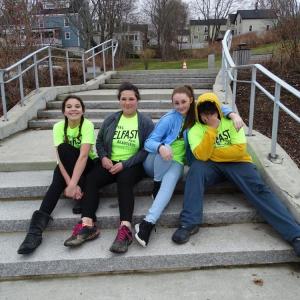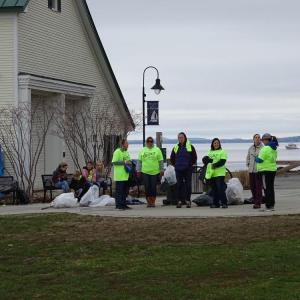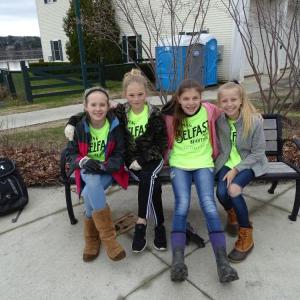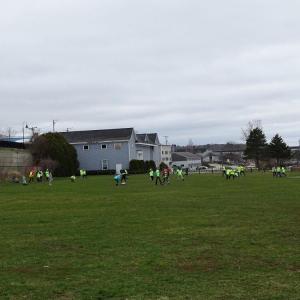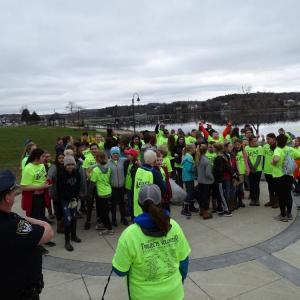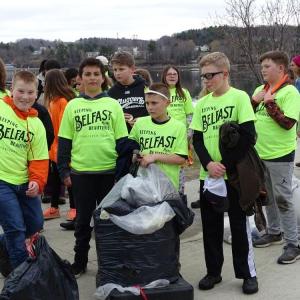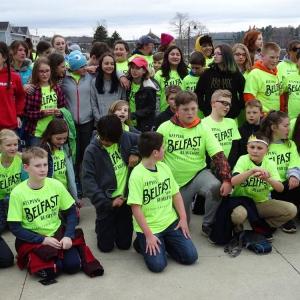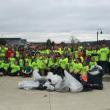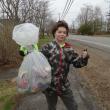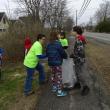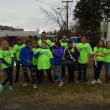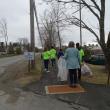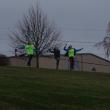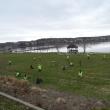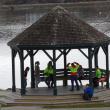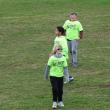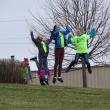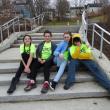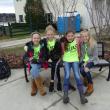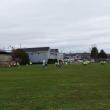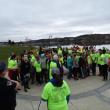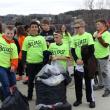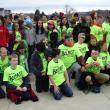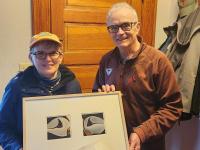Sixth-graders learn about littering, civic duty, during second annual Keeping Belfast Beautiful
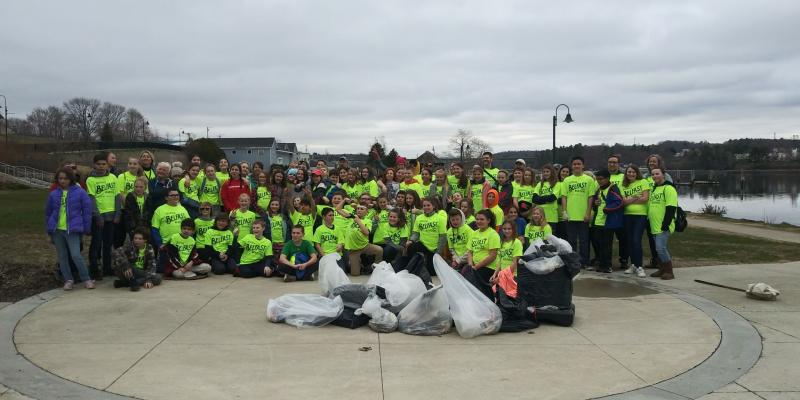 The Troy Howard Middle School’s sixth-grade team poses in front of the garbage they collected from Belfast’s streets May 2. (photo by Erica Thoms)
The Troy Howard Middle School’s sixth-grade team poses in front of the garbage they collected from Belfast’s streets May 2. (photo by Erica Thoms)
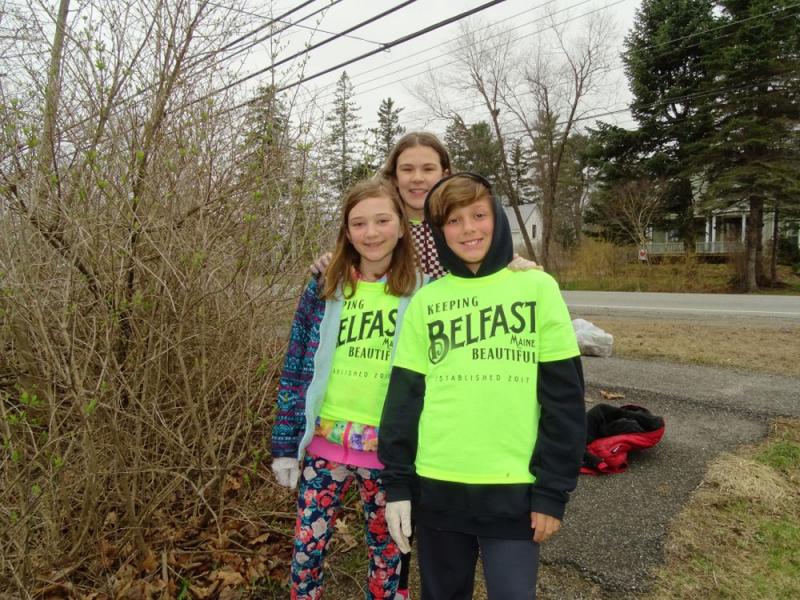 Left to right: Liza Cookson, Eliza Barrett, and Drew
Left to right: Liza Cookson, Eliza Barrett, and Drew
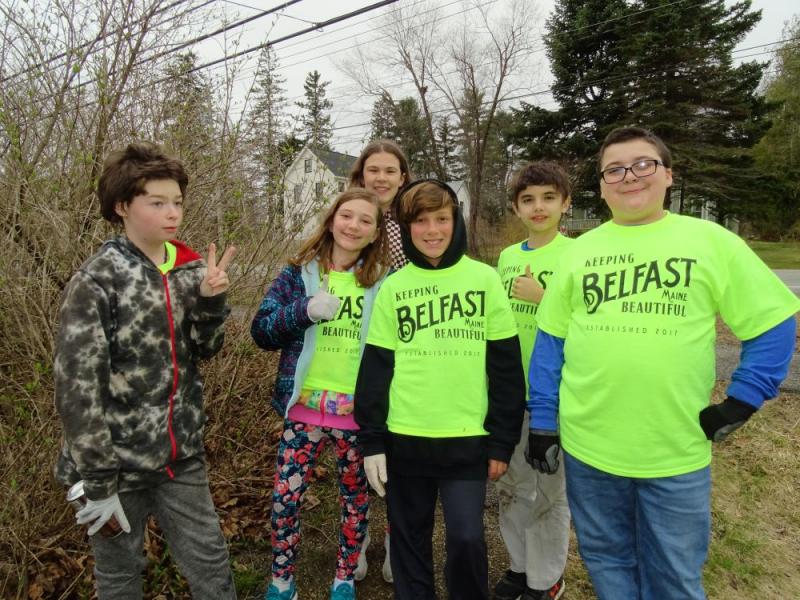 Left to right: D.J. poses with Liza and Eliza. Connor stands far right. (photo by Erica Thoms)
Left to right: D.J. poses with Liza and Eliza. Connor stands far right. (photo by Erica Thoms)
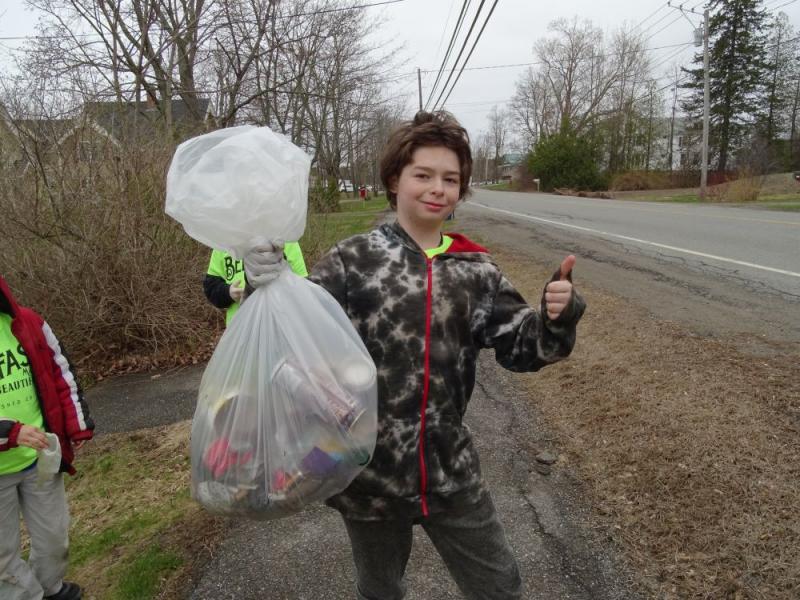 (photo by Erica Thoms)
(photo by Erica Thoms)
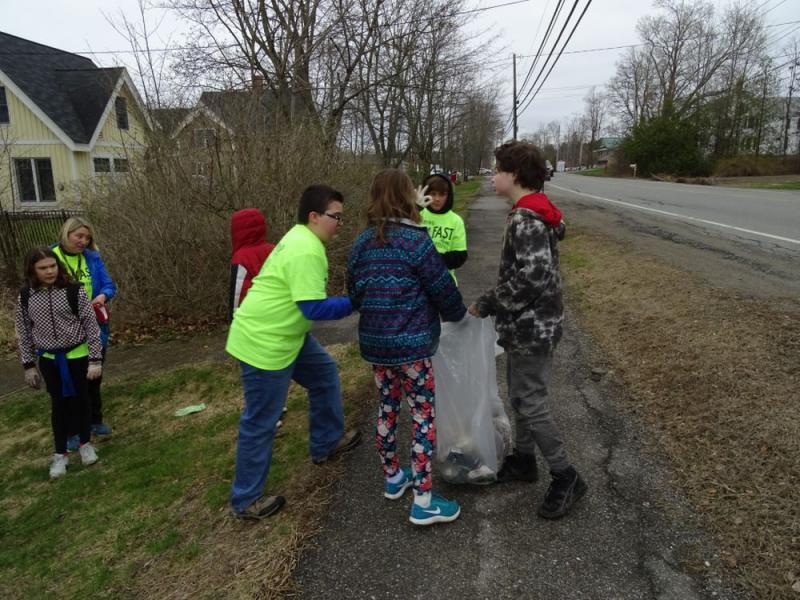 (photo by Erica Thoms)
(photo by Erica Thoms)
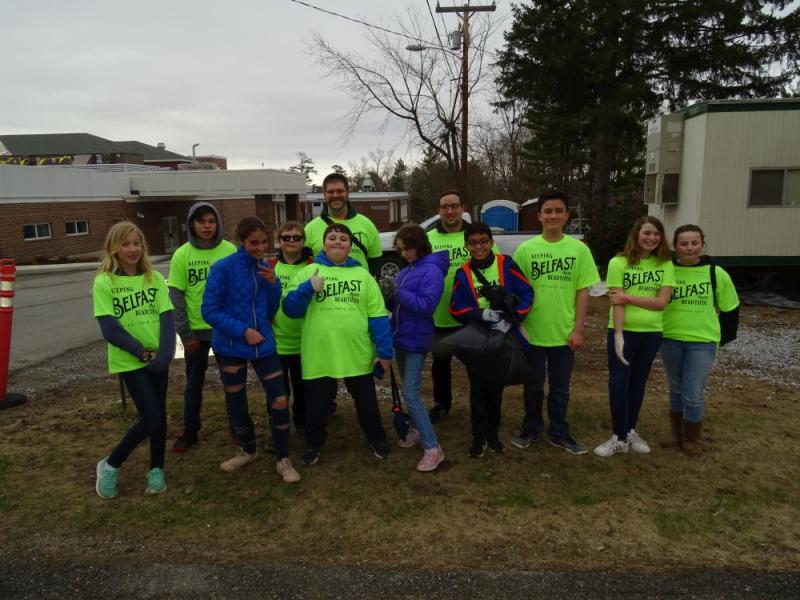 One of the THMS group’s out cleaning poses for a picture May 2. (photo by Erica Thoms)
One of the THMS group’s out cleaning poses for a picture May 2. (photo by Erica Thoms)
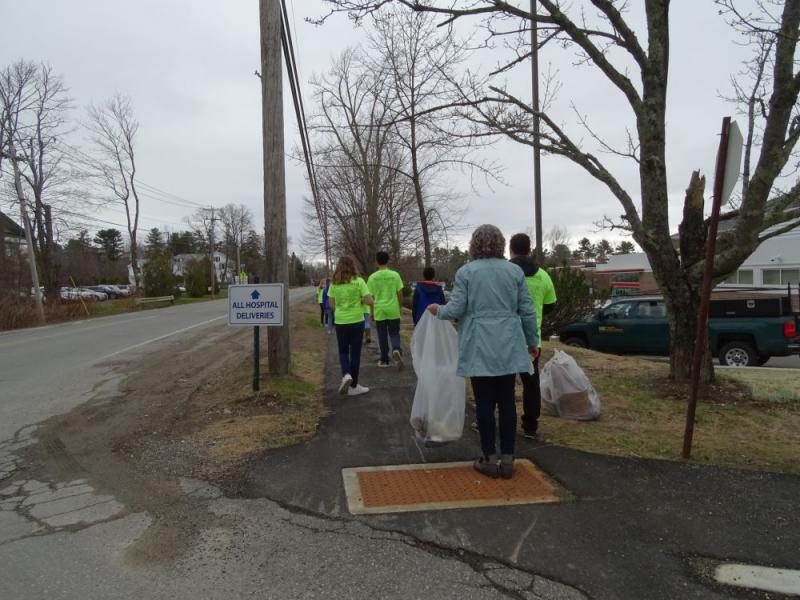 (photo by Erica Thoms)
(photo by Erica Thoms)
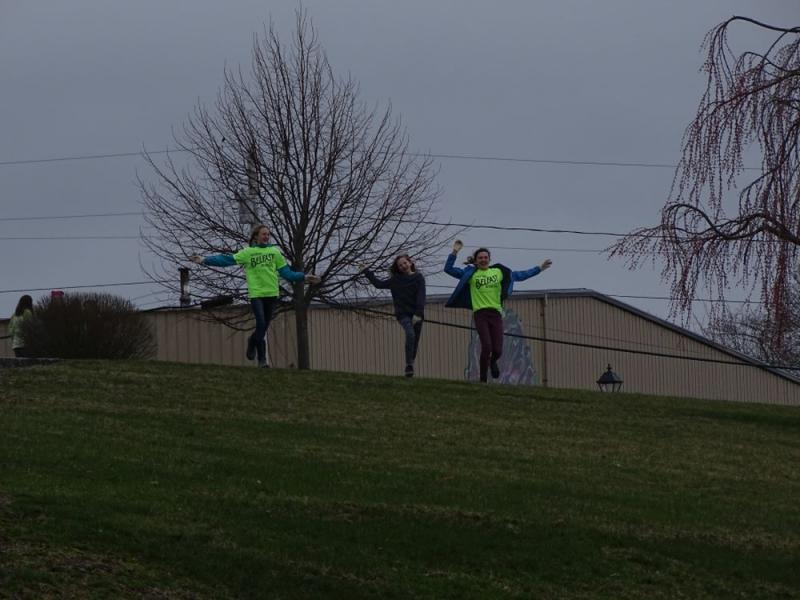 (photo by Erica Thoms)
(photo by Erica Thoms)
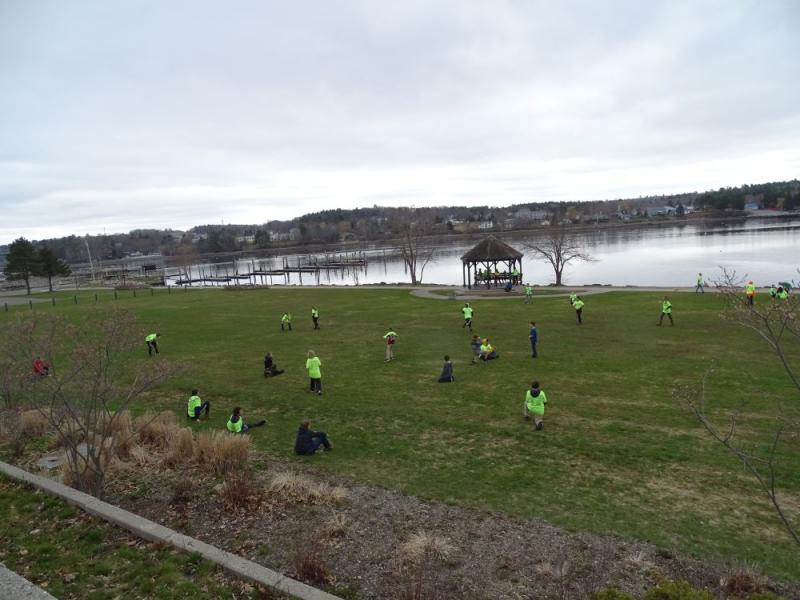 The groups ended up at Belfast’s Boathouse, where they gathered their collected trash. (photo by Erica Thoms)
The groups ended up at Belfast’s Boathouse, where they gathered their collected trash. (photo by Erica Thoms)
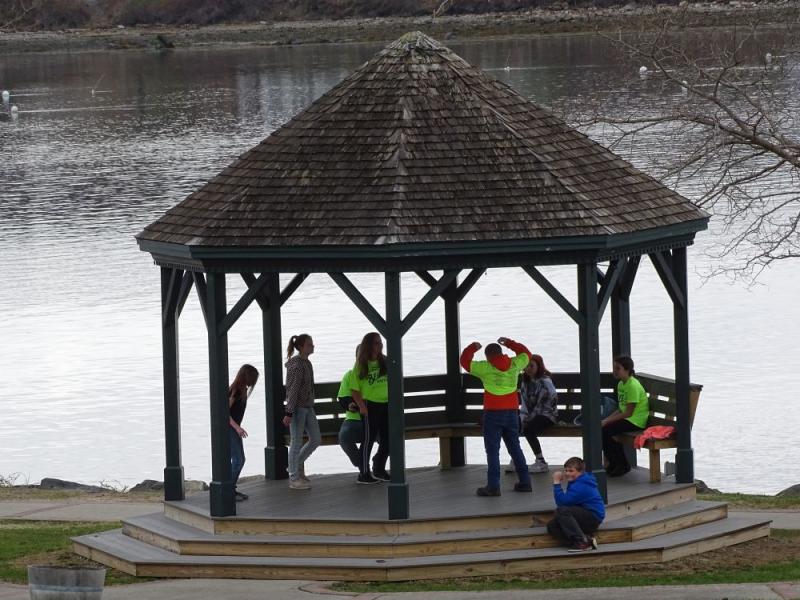 (photo by Erica Thoms)
(photo by Erica Thoms)
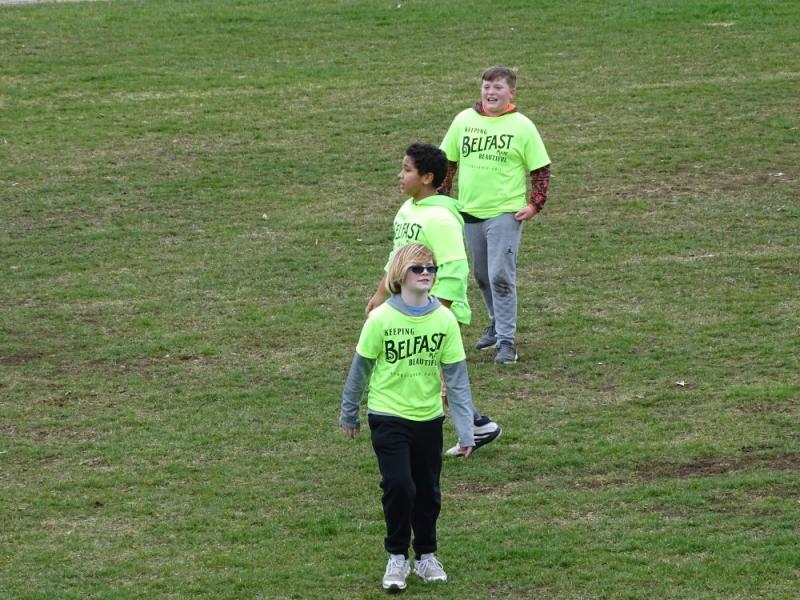 (photo by Erica Thoms)
(photo by Erica Thoms)
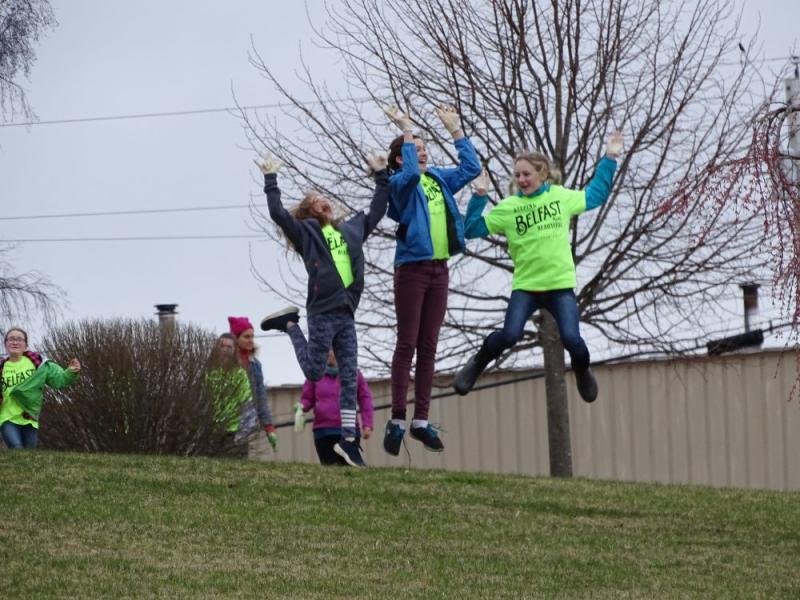 (photo by Erica Thoms)
(photo by Erica Thoms)
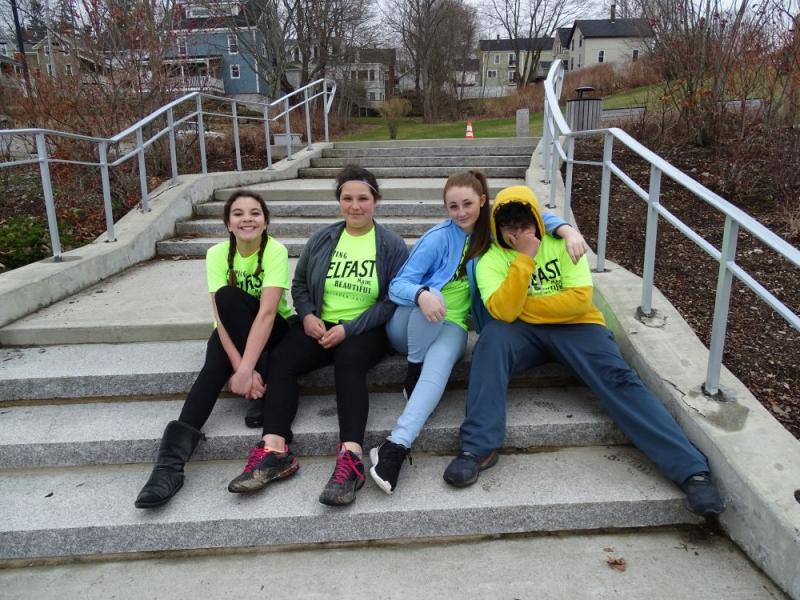 (photo by Erica Thoms)
(photo by Erica Thoms)
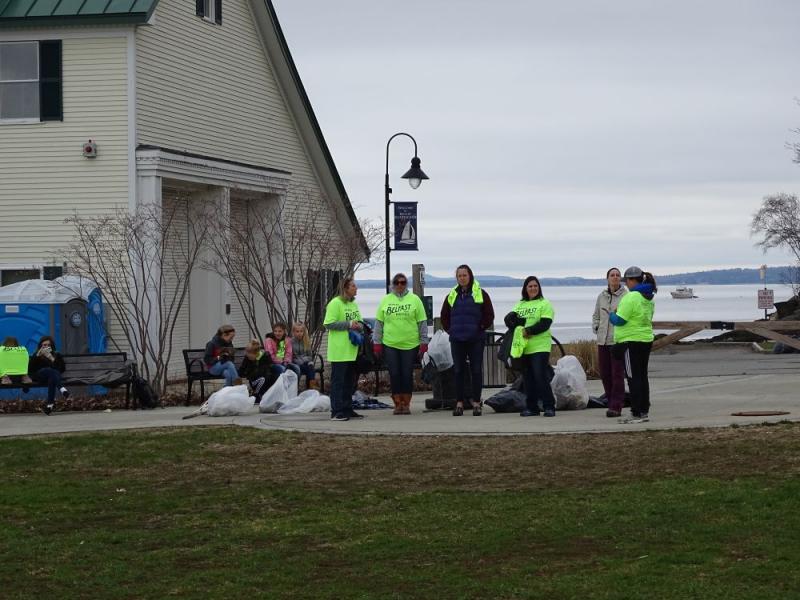 Chaperones stand watching the teenage volunteers. (photo by Erica Thoms)
Chaperones stand watching the teenage volunteers. (photo by Erica Thoms)
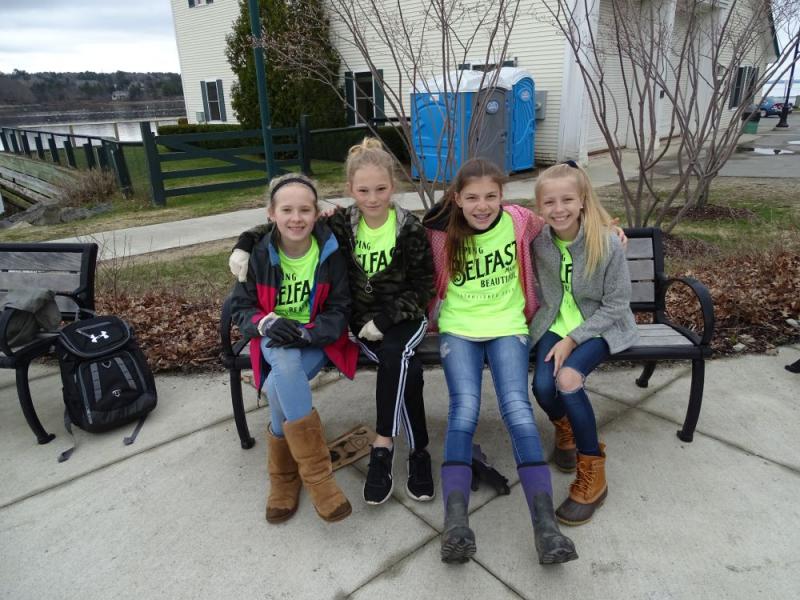 (photo by Erica Thoms)
(photo by Erica Thoms)
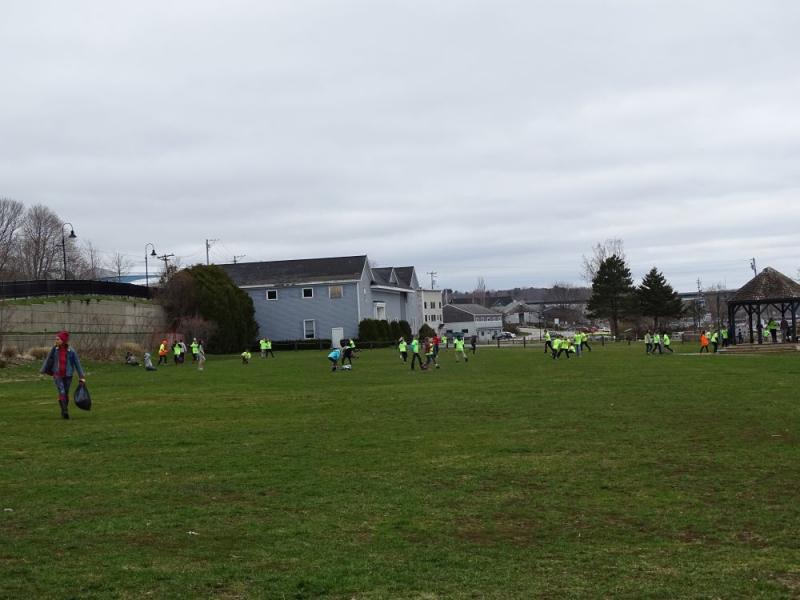 (photo by Erica Thoms)
(photo by Erica Thoms)
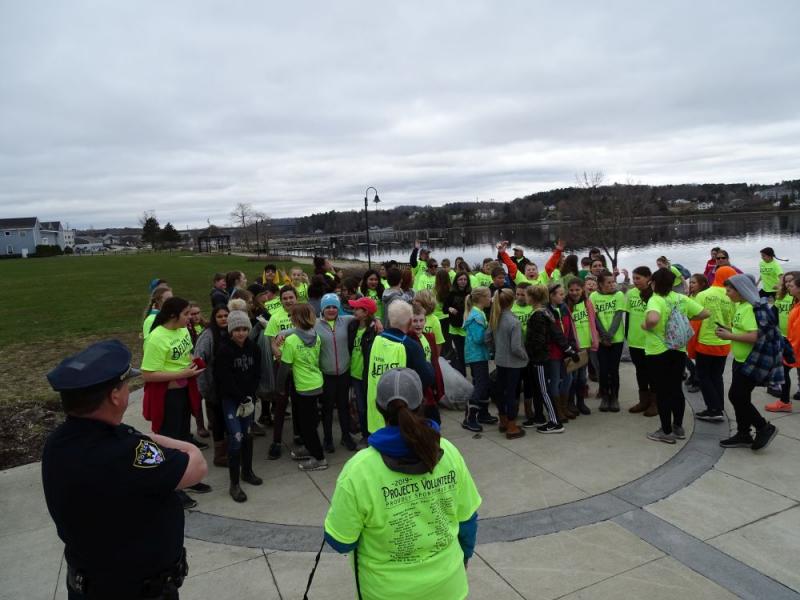 (photo by Erica Thoms)
(photo by Erica Thoms)
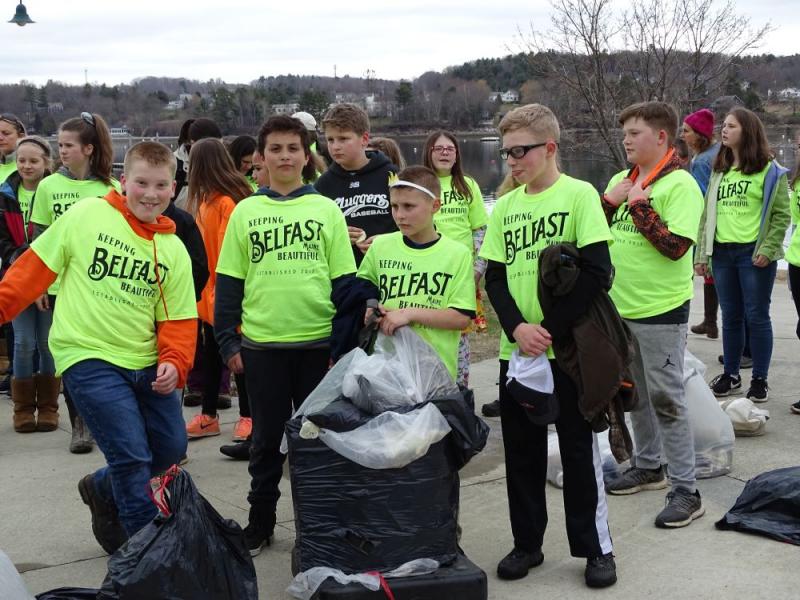 (photo by Erica Thoms)
(photo by Erica Thoms)
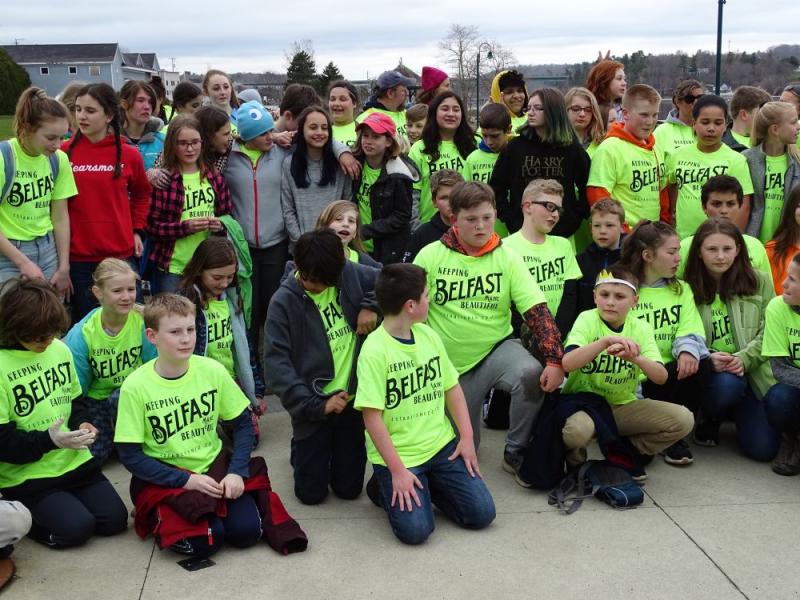 (photo by Erica Thoms)
(photo by Erica Thoms)
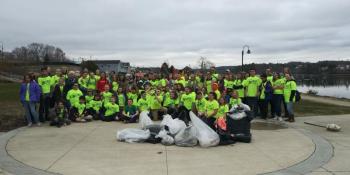 The Troy Howard Middle School’s sixth-grade team poses in front of the garbage they collected from Belfast’s streets May 2. (photo by Erica Thoms)
The Troy Howard Middle School’s sixth-grade team poses in front of the garbage they collected from Belfast’s streets May 2. (photo by Erica Thoms)
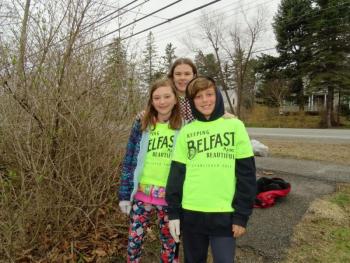 Left to right: Liza Cookson, Eliza Barrett, and Drew
Left to right: Liza Cookson, Eliza Barrett, and Drew
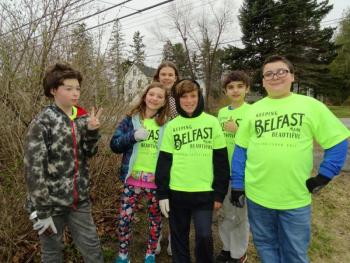 Left to right: D.J. poses with Liza and Eliza. Connor stands far right. (photo by Erica Thoms)
Left to right: D.J. poses with Liza and Eliza. Connor stands far right. (photo by Erica Thoms)
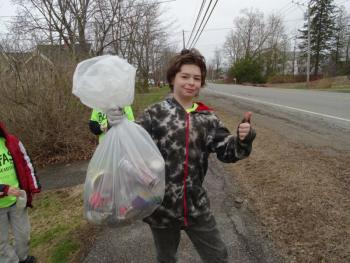 (photo by Erica Thoms)
(photo by Erica Thoms)
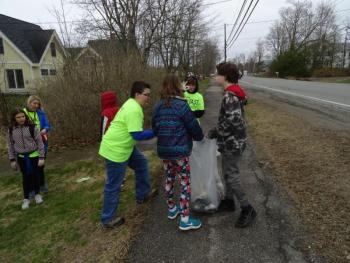 (photo by Erica Thoms)
(photo by Erica Thoms)
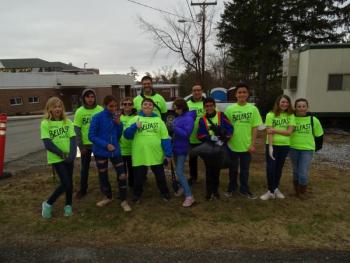 One of the THMS group’s out cleaning poses for a picture May 2. (photo by Erica Thoms)
One of the THMS group’s out cleaning poses for a picture May 2. (photo by Erica Thoms)
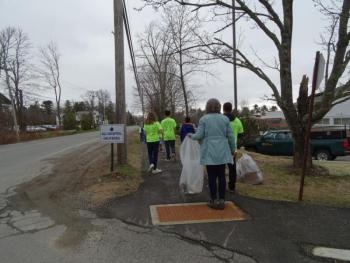 (photo by Erica Thoms)
(photo by Erica Thoms)
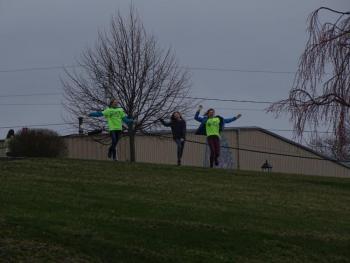 (photo by Erica Thoms)
(photo by Erica Thoms)
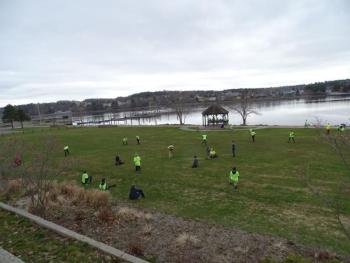 The groups ended up at Belfast’s Boathouse, where they gathered their collected trash. (photo by Erica Thoms)
The groups ended up at Belfast’s Boathouse, where they gathered their collected trash. (photo by Erica Thoms)
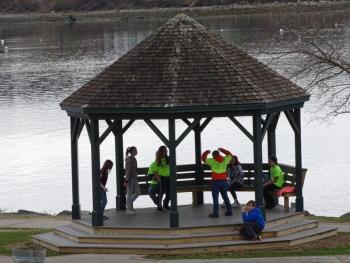 (photo by Erica Thoms)
(photo by Erica Thoms)
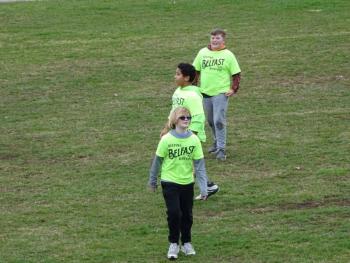 (photo by Erica Thoms)
(photo by Erica Thoms)
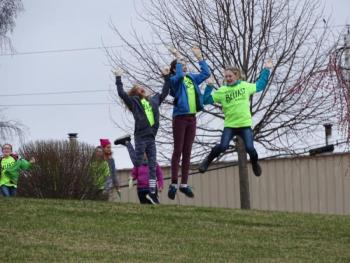 (photo by Erica Thoms)
(photo by Erica Thoms)
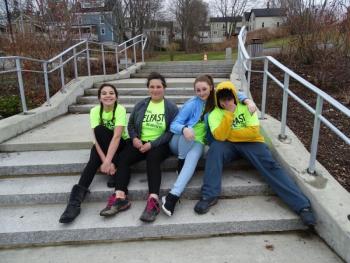 (photo by Erica Thoms)
(photo by Erica Thoms)
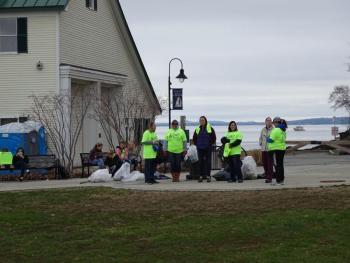 Chaperones stand watching the teenage volunteers. (photo by Erica Thoms)
Chaperones stand watching the teenage volunteers. (photo by Erica Thoms)
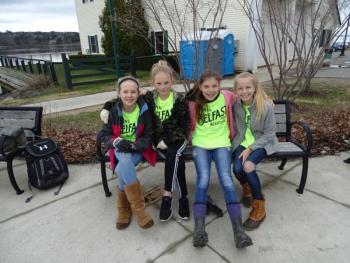 (photo by Erica Thoms)
(photo by Erica Thoms)
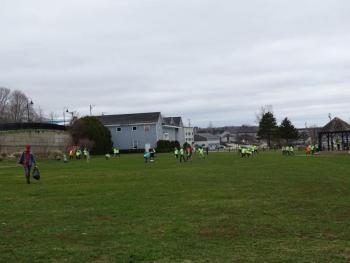 (photo by Erica Thoms)
(photo by Erica Thoms)
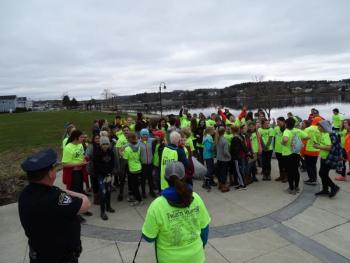 (photo by Erica Thoms)
(photo by Erica Thoms)
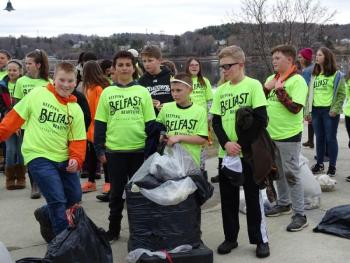 (photo by Erica Thoms)
(photo by Erica Thoms)
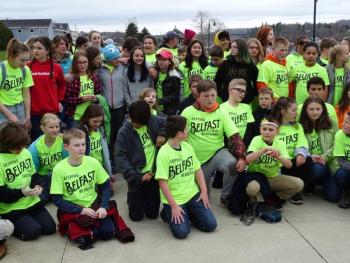 (photo by Erica Thoms)
(photo by Erica Thoms)
BELFAST — The second annual Keeping Belfast Beautiful event was a resounding success following community-wide efforts to clean the streets of Belfast May 2, 3, and 4.
While the main clean-up took place Saturday, May 4, one group of intrepid sixth graders and their teacher (and multiple other chaperones) decided to take to the streets a couple of days early, choosing to put in their efforts on Thursday, May 2, instead of the following day due to rain concerns.
Martha Conway-Cole is the social studies teacher for sixth graders enrolled at Troy Howard Middle School, and times the event to coincide with students studying the watershed.
“When we’re studying the watershed and the oceans we do a lot of research about how plastic is getting into our water supply and into our oceans. Generally the kids really connect to that, because they did see the cigarette butts, which were all around the storm drains, so you can see how when it’s really pouring rain it pours into the gutters and then pours down the storm drains and then the storm drains go right out to the beach and into the ocean,” she said, adding that the kids in her group were jumping over storm drains remarking about how many cigarette butts were near them.
Conway-Cole, who also took her then-sixth grade class for Keeping Belfast Beautiful’s inaugural event last year, said she plans to make the tradition an annual one for her students.
She said she was inspired to learn about what prompted event-founder and Belfast Police Sergeant John Gibbs to start the event, which was his own childhood in Monroe. Gibbs said that when he was growing up in Monroe there was an annual road clean-up that he really enjoyed, and wanted to bring that to Belfast.
As it would turn out, Conway-Cole had her own childhood experiences participating in civic duties on Earth Day each year. In addition to cleaning up near their school campus, she and fellow classmates would also plant trees, and plant native plants in wetlands that were found to improve water quality.
“I went back and they’re huge now, so that was kind of cool,” she said of the trees.
She said she was excited when Gibbs announced the event last year, especially given the potentially life-long effects on students who participate.
“It puts a seed in kids heads about community involvement and stewardship of the environment and they grow up and they spread it to the next community they’re living in, so that’s sort of what we’re looking at,” she said.
In addition to coinciding with their study of the watershed, participation in KBB is part of THMS’s civic standards, where kids take action in their community, and also provides valuable hours of screen-free time, where kids are really taking the time to talk to each other, Conway-Cole said.
Of their reaction to the event, Conway-Cole said the students really seemed to enjoy themselves.
“They talk about “what do we do to prevent people from throwing cigarette butts and what do we do to have less trash on the ground.” That’s one of my goals as a social studies teacher is to have them connect with social policy ideas,” she said, adding that several kids had ideas on ways to potentially curb peoples’ readiness to discard cigarette butts anytime, anywhere.
“So one kid said, “we should have higher fines for littering,” and another kid said, “what if the police spent some time each month giving citations to people who throw cigarette butts out the window?....” it certainly made sense to me,” she said of the suggestions.
“Maybe if people started thinking, “oh, I’m not actually allowed to do this, then maybe they’ll stop doing it,” she said.
When asked why she thinks so many people feel free to litter cigarette butts at will, Conway-Cole said she thinks some of it might be down to misconception.
“I think a lot of people think they’re biodegradable,” she said.
Cigarette butts are the number one type of refuse cleaned from shorelines worldwide each year, according to Dr. Sandra Curtis, of the Plastic Pollution Coalition.
During the 2017 International Coastal Cleanup Day, over 2.4 million cigarette butts were collected, which have filters made up of cellulose acetate - a type of plastic that is non-biodegradable.
Beyond being non-biodegradable, cigarette butts leach toxic chemicals into the water table. The chemicals, which include acetic acid, hexamine, arsenic, and chromium, can remain for up to 10 years and can be poisonous to fish or wildlife who may mistakenly ingest them. Cigarette butts can take up to 15 years to disintegrate.
“Last year my class wrote some letters to the hospital because they were seeing a large amount of cigarettes around the hospital, because people have to step off the campus of the hospital, so they basically throw them all out right there. I think I’m going to try to do some research gathering about who at the hospital to actually address the letters to so that we can maybe get some institutional response to that.”
Conway-Cole said her group gathered a similar amount of trash as last year’s group did, including similar numbers of cigarettes near Waldo County General Hospital, where there are currently no trash receptacles in the front area where people frequently smoke.
“Obviously it’s not the hospital's fault, but some education and receptacles would probably help,” she said.
Conway-Cole wasn’t the only THMS participant to mention cigarette butts, with one of her students, Connor, offering words of advice to would-be litterers.
“We did this ‘cause we gotta keep the ocean clean mostly because when you get all this stuff it’s going to get washed up and go down drains and it's going to come out into the ocean and it's going to start killing the environment. Also if you’re going to smoke, do not throw your cigarettes out onto the road, hold onto them until you get to a place where you can throw them out, because we found at least a hundred,” he said.
Connor said it was his first time participating in the event, which he described as nice, saying “I got a lot of exercise, found some cool things. I found half of a tire…,” he said, though he was unsure of exactly where he found it.
Classmate Drew said the event went well and his group found a lot of trash. He also had succinct advice for litterbugs. “Don’t litter, it’s an idiot move,” he said.
Another man of few words, fellow classmate D.J. said that people should keep Belfast beautiful and “work for the environment.”
Fellow classmate Eliza Barrett said she saw a lot of cigarette butts during the pick-up, which was what she was expecting. Barrett said she would tell people to stop littering and use the trash cans, “that’s why they’re there. The ground is not a trash can,” she said.
As for why she thinks people choose to litter instead of bringing their garbage to an actual trash can, Barrett said she thinks it’s down to laziness.
“They’re too lazy, or they think that other people are going to pick it up for them,” she said, adding that everyone should pick up their own trash.
Classmate Liza Cookson said she thought the event was kind of fun.
“I think it was kind of fun to help Belfast be beautiful again, I guess,” she said. Cookson said they mostly saw cigarette butts and bottles on their route.
“I feel like it’s a good thing ‘cause we’re helping the environment,” she said of spending her time cleaning the streets. Cookson had similar sentiments to share with litterers, saying “People should stop littering, there [are] trash cans.”
For Conway-Cole, and for all of Belfast, the second annual Keeping Belfast Beautiful cleanup, was a resounding success.
“I think it’s really nice to have children get involved in their communities in tangible ways that actually make a difference, so whether parents do it, or boy scouts or girl scouts do it, it makes a difference; it changes kid,” she said. “I know it changed me and its part of why I make sure it happens.”
While the first year of the event netted 4.27 tons of trash, the second annual KBB surpassed that mark by over a ton, with 5.43 tons cleaned from Belfast’s streets by roughly 600 volunteers during the May 4 event.
Erica Thoms can be reached at news@penbaypilot.com
Event Date
Address
United States

